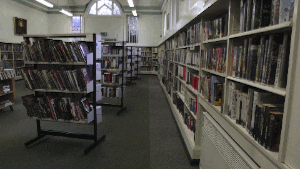Upon making my multimodal fake magazine images, I realized that yeah, I tried to take on way too much for my actual research essay. The breadth of the subject was just a hair too much and there wasn’t enough depth. Despite taking into account Tirabassi’s principle of closure when doing the actual research for my essay, I forgot to incorporate it into articulating my argument and findings.
To remind any readers, Tirabassi’s principle of closure is defined as such:
- “the researcher’s understanding that there are inherent gaps in archival records and that while the archive is complex and rich, it cannot be searched exhaustively” (Tirabassi 171-2)
Translating this to writing however, it means that you as a writer cannot cover all aspects of a subject within a single paper, article, essay, or whatever you’re writing – you have to recognize the limitations of your narrative, address them, and narrow your focus to a simplified topic within the subject.
Thankfully, I was able to apply this to my mutlimodal project. Though not as detailed, and designed as a *fake* educational magazine directed towards students, it is short, sweet, and to the point. Rather than exhaustively explaining all aspects of my argument, I instead offered up a simplified version of what I had been trying to say in my research paper. Here’s a quick sneak peep of the final version – though I’m just showing the cover to my fake magazine.
Source: K. Harada








